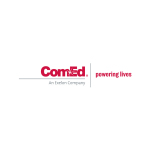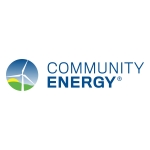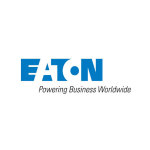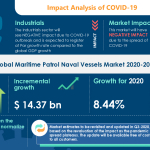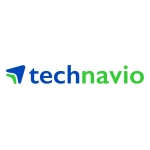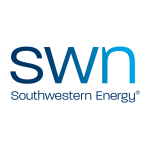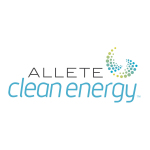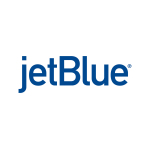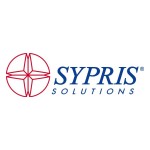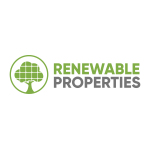HOUSTON--(BUSINESS WIRE)--Calpine Corporation:
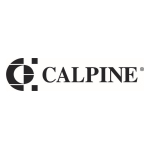
Summary of Second Quarter 2020 Financial Results (in millions):
|
|
|
Three Months Ended June 30,
|
|
Six Months Ended June 30,
|
|
|
2020
|
|
2019
|
|
% Change
|
|
2020
|
|
2019
|
|
% Change
|
|
|
|
|
|
|
|
|
|
|
|
|
|
Operating Revenues
|
|
$
|
1,744
|
|
|
$
|
2,599
|
|
|
(32.9
|
)%
|
|
$
|
4,036
|
|
|
$
|
5,198
|
|
|
(22.4
|
)%
|
Income from operations
|
|
$
|
312
|
|
|
$
|
444
|
|
|
(29.7
|
)%
|
|
$
|
661
|
|
|
$
|
802
|
|
|
(17.6
|
)%
|
Cash provided by operating activities
|
|
$
|
221
|
|
|
$
|
278
|
|
|
(20.5
|
)%
|
|
$
|
434
|
|
|
$
|
519
|
|
|
(16.4
|
)%
|
Net Income1
|
|
$
|
163
|
|
|
$
|
266
|
|
|
(38.7
|
)%
|
|
$
|
291
|
|
|
$
|
441
|
|
|
(34.0
|
)%
|
Commodity Margin2
|
|
$
|
723
|
|
|
$
|
752
|
|
|
(3.9
|
)%
|
|
$
|
1,311
|
|
|
$
|
1,531
|
|
|
(14.4
|
)%
|
Adjusted Unlevered Free Cash Flow2
|
|
$
|
319
|
|
|
$
|
360
|
|
|
(11.4
|
)%
|
|
$
|
545
|
|
|
$
|
779
|
|
|
(30.0
|
)%
|
Adjusted Free Cash Flow2
|
|
$
|
182
|
|
|
$
|
203
|
|
|
(10.3
|
)%
|
|
$
|
262
|
|
|
$
|
467
|
|
|
(43.9
|
)%
|
1 Reported as Net Income attributable to Calpine on our Consolidated Condensed Statements of Operations.
2 Non-GAAP financial measure, see “Regulation G Reconciliations” for further details.
Calpine Corporation today reported Net Income of $163 million for the second quarter of 2020 compared to $266 million in the prior year period. The period-over-period decrease in Net Income was primarily due to a decrease in Commodity Margin2 driven in large part by a reduction in capacity revenue received in the ISO-NE and PJM markets and a decrease in non-cash, mark-to-market earnings on our commodity hedge positions for the three months ended June 30, 2020, compared to the same period in 2019. The decrease was partially offset by a favorable period-over-period change in our income taxes resulting from the partial release of our valuation allowance associated with our NOLs during the second quarter of 2020. Cash provided by operating activities for the second quarter of 2020 was $221 million compared to $278 million in the prior year period. The decrease in Cash provided by operating activities, after adjusting for non-cash items, was primarily due to the decrease in Commodity Margin,2 as previously discussed, and an increase in working capital employed primarily resulting from a period-over-period change in energy margin posting requirements due to the return of cash collateral to a counterparty in exchange for a letter of credit during the second quarter of 2020.
Net Income for the first half of 2020 was $291 million compared to Net Income of $441 million in the prior year period. The period-over-period decrease in Net Income was primarily due to a decrease in Commodity Margin2 driven in large part by a reduction in capacity revenue received in the ISO-NE and PJM markets as well as a reduction in contribution from hedges as a result of milder weather in the first quarter of 2020. Cash provided by operating activities for the first half of 2020 was $434 million compared to $519 million in the prior year period. The period-over-period decrease in cash provided by operating activities was primarily due to the decrease in Commodity Margin,2 as previously discussed, partially offset by a decrease in working capital employed primarily resulting from a period-over-period net decrease in energy margin posting requirements and lower inventory purchases.
REGIONAL SEGMENT REVIEW OF RESULTS
Table 1: Commodity Margin by Segment (in millions)
|
|
|
Three Months Ended June 30,
|
|
Six Months Ended June 30,
|
|
|
2020
|
|
2019
|
|
Variance
|
|
2020
|
|
2019
|
|
Variance
|
West
|
|
$
|
269
|
|
|
$
|
251
|
|
|
$
|
18
|
|
|
$
|
503
|
|
|
$
|
515
|
|
|
$
|
(12
|
)
|
Texas
|
|
172
|
|
|
173
|
|
|
(1
|
)
|
|
285
|
|
|
335
|
|
|
(50
|
)
|
East
|
|
193
|
|
|
235
|
|
|
(42
|
)
|
|
343
|
|
|
500
|
|
|
(157
|
)
|
Retail
|
|
89
|
|
|
93
|
|
|
(4
|
)
|
|
180
|
|
|
181
|
|
|
(1
|
)
|
Total
|
|
$
|
723
|
|
|
$
|
752
|
|
|
$
|
(29
|
)
|
|
$
|
1,311
|
|
|
$
|
1,531
|
|
|
$
|
(220
|
)
|
West Region
Second Quarter: Commodity Margin in our West segment increased by $18 million in the second quarter of 2020 compared to the prior year period. Primary drivers were:
+ higher resource adequacy revenue,
+ increased contribution from higher generation driven in part by the restart of our South Point Energy Center during the second half of 2019, and
+ the acquisition on January 28, 2020 of the 25% noncontrolling interest of Russell City Energy Company, LLC which was previously owned by a third party.
Year-to-Date: Commodity Margin in our West segment decreased by $12 million in the first half of 2020 compared to the prior year period. Primary drivers were:
– lower market spark spreads in January and February 2020 resulting largely from lower natural gas prices in Southern California, and
– lower contribution from hedging activity, partially offset by
+ higher resource adequacy revenue, and
+ increased contribution from higher generation driven in part by the restart of our South Point Energy Center during the second half of 2019.
Texas Region
Second Quarter: Commodity Margin in our Texas segment decreased by $1 million in the second quarter of 2020 compared to the prior year period. Primary drivers were:
– lower contribution from hedging activity largely offset by
+ modestly higher market spark spreads.
Year-to-Date: Commodity Margin in our Texas segment decreased by $50 million in the first half of 2020 compared to the prior year period, primarily due to lower contribution from hedging activity.
East Region
Second Quarter: Commodity Margin in our East segment decreased by $42 million in the second quarter of 2020 compared to the prior year period. Primary drivers were:
– lower regulatory capacity revenue in ISO-NE and PJM and
– the sale of our Garrison and RockGen Energy Centers in July 2019.
Year-to-Date: Commodity Margin in our East segment decreased by $157 million in the first half of 2020 compared to the prior year period. Primary drivers were:
– lower regulatory capacity revenue in ISO-NE and PJM,
– the sale of our Garrison and RockGen Energy Centers in July 2019, and
– lower contribution from hedging activity resulting from milder weather during the first quarter of 2020, partially offset by
+ the commencement of commercial operations at our 828 MW York 2 Energy Center in March 2019.
Retail
Second Quarter: Commodity Margin in our Retail segment remained largely unchanged in the second quarter of 2020 compared to the prior year period.
Year-to-Date: Commodity Margin in our Retail segment remained largely unchanged in the first half of 2020 compared to the prior year period.
LIQUIDITY, CASH FLOW AND CAPITAL RESOURCES
Table 2: Liquidity (in millions)
|
|
|
June 30, 2020
|
|
December 31, 2019
|
Cash and cash equivalents, corporate(1)
|
|
$
|
574
|
|
|
$
|
1,072
|
|
Cash and cash equivalents, non-corporate
|
|
103
|
|
|
59
|
|
Total cash and cash equivalents
|
|
677
|
|
|
1,131
|
|
Restricted cash
|
|
241
|
|
|
345
|
|
Corporate Revolving Facility availability(2)
|
|
1,534
|
|
|
1,392
|
|
CDHI revolving facility availability(3)
|
|
1
|
|
|
1
|
|
Other facilities availability(4)
|
|
37
|
|
|
3
|
|
Total current liquidity availability(5)
|
|
$
|
2,490
|
|
|
$
|
2,872
|
|
(1) Our ability to use corporate cash and cash equivalents is unrestricted. On January 21, 2020, we used the remaining cash on hand from the issuance of our 2028 First Lien Notes and 2028 Senior Unsecured Notes to redeem approximately $1,052 million aggregate principal amount of our 2022 and 2024 First Lien Notes and 2023 Senior Unsecured Notes.
(2) Our ability to use availability under our Corporate Revolving Facility is unrestricted. At June 30, 2020, the approximately $2.0 billion in total capacity under our Corporate Revolving Facility is comprised of $462 million in letters of credit outstanding, no borrowings outstanding and $1,534 million in remaining available capacity.
(3) Our CDHI revolving facility is restricted to support certain obligations under PPAs and power transmission and natural gas transportation agreements as well as fund the construction of our Washington Parish Energy Center.
(4) On April 9, 2020, we amended one of our unsecured letter of credit facilities to partially extend the maturity of $100 million in commitments from June 20, 2020 to June 20, 2022. On June 9, 2020, we entered into the GPC Term Loan which provides for $200 million in letter of credit facilities.
(5) Includes $23 million and $127 million of margin deposits posted with us by our counterparties at June 30, 2020 and December 31, 2019, respectively.
Liquidity was approximately $2.5 billion as of June 30, 2020. Cash, cash equivalents and restricted cash decreased by $558 million during the first half of 2020, largely due to the redemption of the remaining $1.1 billion aggregate principal amount of our 2022 and 2024 First Lien Notes and our 2023 Senior Unsecured Notes on January 21, 2020, as further discussed below, partially offset by cash provided by operating activities.
Table 3: Cash Flow Activities (in millions)
|
|
|
Six Months Ended June 30,
|
|
|
2020
|
|
2019
|
Beginning cash, cash equivalents and restricted cash
|
|
$
|
1,476
|
|
|
$
|
406
|
|
Net cash provided by (used in):
|
|
|
|
|
Operating activities
|
|
434
|
|
|
519
|
|
Investing activities
|
|
(304
|
)
|
|
(315
|
)
|
Financing activities
|
|
(688
|
)
|
|
(51
|
)
|
Net increase (decrease) in cash, cash equivalents and restricted cash
|
|
(558
|
)
|
|
153
|
|
Ending cash, cash equivalents and restricted cash
|
|
$
|
918
|
|
|
$
|
559
|
|
Cash provided by operating activities for six months ended June 30, 2020 was $434 million compared to $519 million in the prior year period. The period-over-period decrease in cash provided by operating activities is primarily driven by the reduction in Commodity Margin for the six months ended June 30, 2020, when compared to the same period in 2019. This reduction is partially offset by a reduction in cash employed for working capital driven by a reduction in energy margin posting requirements and lower inventory purchases.
Cash used in investing activities was $304 million for six months ended June 30, 2020 compared to $315 million in the prior year period. The period-over period decrease in cash used is primarily attributable to a decrease in capital expenditures associated with the completion of construction of our York 2 Energy Center in March 2019 as well as timing differences in normal, recurring maintenance projects.
Cash used in financing activities was $688 million during the six months ended June 30, 2020 compared to $51 million in the prior period. The cash used during the first half of 2020 is primarily attributable to the redemption of the outstanding aggregate principal amount of $623 million of our 2023 Senior Unsecured Notes, $245 million of our 2022 First Lien Notes and $184 million of our 2024 First Lien Notes with the proceeds from our 2028 Senior Unsecured Notes and 2028 First Lien Notes issued in December of 2019. In addition, we issued our $900 million Geysers Power Company, LLC (GPC) Term Loan in June 2020 and used a portion of the proceeds to repay approximately $348 million in aggregate principal amount of project debt. We also acquired the 25% noncontrolling interest in Russell City Energy Center, LLC for $35 million plus working capital adjustments of approximately $14 million for a total purchase price of approximately $49 million in January 2020.
COVID-19 Pandemic Update
In March 2020, the World Health Organization categorized the novel coronavirus disease 2019 (COVID-19) as a pandemic, and the President declared the COVID-19 outbreak a national emergency. COVID-19 continues to spread throughout the United States and other countries across the world negatively affecting the global economy, disrupting global supply chains and workforce participation and resulting in significant volatility and disruption of financial markets. While we have noted recovery in certain key geographic areas where we own generation facilities, we continue to closely monitor the impact of the COVID-19 outbreak on all aspects of our business, including how it has affected and continues to affect our employees, customers, suppliers and the communities in which we operate.
Our first priority with regard to the COVID-19 outbreak is to ensure the health and safety of our employees and contractors. As one of the largest independent power producers in the U.S., we are designated as an “essential business” and have an obligation to operate our fleet of power plants to sustain the bulk electric system and manage retail customer power delivery obligations. To ensure the continued reliable operations of our generation fleet and delivery of power to our retail customers, we continue to abide by a set of safety and health measures as a means to ensure we are able to provide reliable energy to the markets we serve. These measures include restricting access at our power plants to only mission-critical individuals and adherence to social distancing protocols wherever possible. Additionally, our commercial and retail operations, including all support staff such as legal, accounting, finance, information technology and human resources, continue to work remotely.
To date, the COVID-19 outbreak has not had a material adverse effect on our operations, financial condition or cash flows. While the ultimate determination depends on the length and severity of the crisis, at this time, we anticipate our cash flows from operations and our available sources of liquidity will be sufficient to meet our current cash requirements during this period. As the impact of the COVID-19 outbreak on the economy and our operations evolves, we will continue to assess and manage our liquidity needs.
The ultimate extent to which the COVID-19 pandemic may impact our business, operating results, financial condition or liquidity will depend on future developments, including the duration of the outbreak, continued business and workforce disruptions, the effectiveness of actions taken to contain and treat the disease and the lasting effect on the economy, especially in the geographic areas where we own and operate power generating facilities and serve retail customers. Given the uncertainty concerning the overall impact of the COVID-19 outbreak, while we do not anticipate the effect of the outbreak to have a material adverse effect on our financial condition, results of operations or cash flows for the year ended December 31, 2020, we are unable to predict the ultimate impact of the outbreak on our future results. For further discussion, see “Item 1A. Risk Factors” in Part II of our Form 10-Q for the quarterly period ended June 30, 2020.
Portfolio Management
On January 28, 2020, we completed the acquisition of the 25% noncontrolling interest of Russell City Energy Company, LLC for $35 million plus working capital adjustments of approximately $14 million for a total purchase price of approximately $49 million. Prior to the acquisition, we accounted for the third party ownership interest as a noncontrolling interest.
Balance Sheet Management
On January 21, 2020, we redeemed the outstanding aggregate principal amount of $245 million of our 2022 First Lien Notes, $184 million of our 2024 First Lien Notes and $623 million of our 2023 Senior Unsecured Notes, which were included in debt, current portion on our Consolidated Condensed Balance Sheet at December 31, 2019, with the proceeds from the 2028 First Lien Notes and 2028 Senior Unsecured Notes that we issued in December 2019, which were included in cash and cash equivalents on our Consolidated Condensed Balance Sheet at December 31, 2019.
On June 9, 2020, GPC and the guarantors party thereto entered into a seven-year $900 million first lien senior secured term loan facility and three senior secured revolving letter of credit facilities totaling $200 million. The GPC Term Loan is certified under the Climate Bonds Standard. Any letters of credit issued under the GPC Term Loan letter of credit facilities must be at the request of and for the account of GPC. The GPC Term Loan bears interest, at GPC’s option, at either (i) the Base Rate, equal to the highest of (a) the Federal Funds Rate plus 0.50% per annum, (b) the prime rate published in the Wall Street Journal, or (c) 1.0% plus an applicable margin of 1.0%, increasing by 0.125% every three years, or (ii) LIBOR plus an applicable margin of 2.0% per annum, increasing by 0.125% every three years. The GPC Term Loan matures on June 9, 2027, but may be prepaid at any time upon irrevocable notice to the Administrative Agent. We used a portion of the proceeds from the GPC Term Loan to repay approximately $348 million of project debt.
The GPC Term Loan is secured by certain real and personal property of GPC consisting primarily of the Geysers Assets. The GPC Term Loan is not guaranteed by Calpine Corporation and is without recourse to Calpine Corporation or any of our non-GPC subsidiaries or assets; however, GPC generates a portion of its cash flows from an intercompany tolling agreement with Calpine Energy Services, L.P. and has various service agreements in place with other subsidiaries of Calpine Corporation.
On August 10, 2020, we issued $650 million in aggregate principal amount of 4.625% senior unsecured notes due 2029 and $850 million in aggregate principal amount of 5.000% senior unsecured notes due 2031 in private placements. The 2029 Senior Unsecured Notes bear interest at 4.625% per annum and the 2031 Senior Unsecured Notes bear interest at 5.000% per annum with interest payable on both series of notes semi-annually on February 1 and August 1 of each year, beginning on February 1, 2021. The 2029 Senior Unsecured Notes and 2031 Senior Unsecured Notes mature on February 1, 2029 and February 1, 2031, respectively.
On August 10, 2020, we utilized proceeds from our 2029 Senior Unsecured Notes and 2031 Senior Unsecured Notes, together with cash on hand, to purchase approximately $255 million and $1,045 million in aggregate principal amount of our 2024 Senior Unsecured Notes and 2025 Senior Unsecured Notes, respectively. On August 12, 2020, we redeemed the remaining amounts outstanding under our 2024 Senior Unsecured Notes and 2025 Senior Unsecured Notes.
PG&E Bankruptcy
On July 1, 2020, PG&E and PG&E Corporation emerged from bankruptcy. Under PG&E's plan of reorganization, our PPAs were assumed and any restrictions on our projects arising from the bankruptcy were cured.
We currently have several power plants that provide energy and energy-related products to PG&E under PPAs, many of which have PG&E collateral posting requirements. Subsequent to the bankruptcy filing, we received all material payments under the PPAs, either directly or through the application of collateral. We also currently have numerous other agreements with PG&E related to the operation of our power plants in Northern California, under which PG&E continued to provide service subsequent to its bankruptcy filing.
ABOUT CALPINE
Calpine Corporation is America’s largest generator of electricity from natural gas and geothermal resources with operations in competitive power markets. Our fleet of 78 power plants in operation or under construction represents over 26,000 megawatts of generation capacity. Through wholesale power operations and our retail businesses Calpine Energy Solutions and Champion Energy, we serve customers in 23 states, Canada and Mexico. Our clean, efficient, modern and flexible fleet uses advanced technologies to generate power in a low-carbon and environmentally responsible manner. We are uniquely positioned to benefit from the secular trends affecting our industry, including the abundant and affordable supply of clean natural gas, environmental regulation, aging power generation infrastructure and the increasing need for dispatchable power plants to successfully integrate intermittent renewables into the grid. Please visit www.calpine.com to learn more about how Calpine is creating power for a sustainable future.
Calpine’s Quarterly Report on Form 10-Q for the quarter ended June 30, 2020, will be filed with the Securities and Exchange Commission (SEC) and will be available on the SEC’s website at www.sec.gov.
FORWARD-LOOKING INFORMATION
In addition to historical information, this release contains “forward-looking statements” within the meaning of the Private Securities Litigation Reform Act of 1995, Section 27A of the Securities Act, and Section 21E of the Exchange Act. Forward-looking statements may appear throughout this release. We use words such as “believe,” “intend,” “expect,” “anticipate,” “plan,” “may,” “will,” “should,” “estimate,” “potential,” “project” and similar expressions to identify forward-looking statements. Such statements include, among others, those concerning our expected financial performance and strategic and operational plans, as well as all assumptions, expectations, predictions, intentions or beliefs about future events. We believe that the forward-looking statements are based upon reasonable assumptions and expectations. However, you are cautioned that any such forward-looking statements are not guarantees of future performance and that a number of risks and uncertainties could cause actual results to differ materially from those anticipated in the forward-looking statements. Such risks and uncertainties include, but are not limited to:
-
Public health threats or outbreaks of communicable diseases, such as the ongoing COVID-19 pandemic and its impact on our business, suppliers, customers, employees and supply chains;
-
Financial results that may be volatile and may not reflect historical trends due to, among other things, seasonality of demand, fluctuations in prices for commodities such as natural gas and power, changes in U.S. macroeconomic conditions, fluctuations in liquidity and volatility in the energy commodities markets and our ability and the extent to which we hedge risks;
-
Laws, regulations and market rules in the wholesale and retail markets in which we participate and our ability to effectively respond to changes in laws, regulations or market rules or the interpretation thereof including those related to the environment, derivative transactions and market design in the regions in which we operate;
-
Our ability to manage our liquidity needs, access the capital markets when necessary and comply with covenants under our Senior Unsecured Notes, First Lien Term Loans, First Lien Notes, Corporate Revolving Facility, CCFC Term Loan and other existing financing obligations;
-
Risks associated with the operation, construction and development of power plants, including unscheduled outages or delays and plant efficiencies;
-
Risks related to our geothermal resources, including the adequacy of our steam reserves, unusual or unexpected steam field well and pipeline maintenance requirements, variables associated with the injection of water to the steam reservoir and potential regulations or other requirements related to seismicity concerns that may delay or increase the cost of developing or operating geothermal resources;
-
Extensive competition in our wholesale and retail business, including from renewable sources of power, interference by states in competitive power markets through subsidies or similar support for new or existing power plants, lower prices and other incentives offered by retail competitors, and other risks associated with marketing and selling power in the evolving energy markets;
-
Structural changes in the supply and demand of power resulting from the development of new fuels or technologies and demand-side management tools (such as distributed generation, power storage and other technologies);
-
The expiration or early termination of our PPAs and the related results on revenues;
-
Future capacity revenue may not occur at expected levels;
-
Natural disasters, such as hurricanes, earthquakes, droughts and floods, acts of terrorism, cyber attacks or wildfires that may affect our power plants or the markets our power plants or retail operations serve and our corporate offices;
-
Disruptions in or limitations on the transportation of natural gas or fuel oil and the transmission of power;
-
Our ability to manage our counterparty and customer exposur
Contacts
Media Relations:
Brett Kerr
713-830-8809
This email address is being protected from spambots. You need JavaScript enabled to view it.
Investor Relations:
Bryan Kimzey
713-830-8777
This email address is being protected from spambots. You need JavaScript enabled to view it.
Read full story here 



